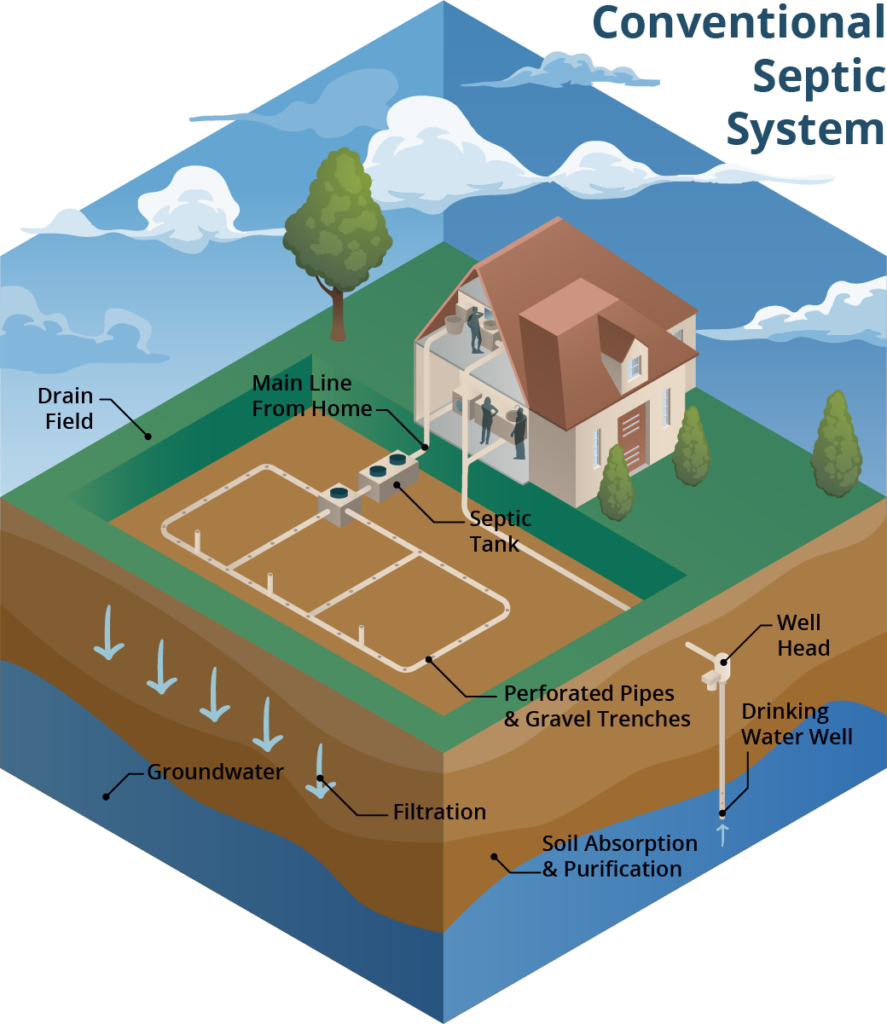By Brad Buck, UF/IFAS Communications
Hurricanes Helene and Milton left many homeowners with flooded septic tanks. To make sure your system is ready for future storms, a University of Florida scientist has suggestions for you.
“If you are one of those homeowners with a flooded septic system, it’s likely not working properly and should be inspected by a professional as soon as possible,” said Mary Lusk, a UF/IFAS assistant professor of soil, water and ecosystem sciences. “If your system was not flooded, you can take time now to get an inspection to make sure your system is good before next year’s hurricane season arrives.”
About 2 million Florida homes – or about 30% of the state’s residents – rely on septic to treat wastewater, Lusk said. When they flood, they can fill with debris and must be professionally cleaned.
“You can’t really prevent flood damage,” said Lusk, author of a new Ask IFAS document on septic systems. “If it happens, it happens. But take time during the hurricane offseason to make sure your system has been regularly pumped and inspected. We recommend doing this about every three years or so.”

In addition to an inspection, here are two more tips for the future:
- Next year, if a hurricane is forecast, reduce water use in your home as much as possible in the days leading up to the storm. This will reduce the amount of waste your system has to treat during that vulnerable time when soils may flood.
- Purchase a temporary toilet or toilet seat that you can use on a bucket, so you’ll be prepared in case your lot floods, and you have to stop using your household toilet. These can often be found in the camping sections of sporting goods stores or at online vendors.
Septic systems are made of two parts: a septic tank and a drain field.
Flooding associated with hurricanes can decrease the depth of unsaturated soil in a drain field and thus lower the ability of the septic system to work properly, Lusk said.
“Septic systems rely on unsaturated soils to safely remove germs from human waste, and a flooded lot with a septic system means a lot that isn’t doing its No. 1 human health job,” she said.
When Milton roared through Florida, dumping more than a foot of rain in some places, it rendered some septic tanks ineffective.
Flooding from a hurricane can mean a system that is not usable for days or weeks, while the homeowner waits for flood water to go away, said Lusk, a faculty member at the Gulf Coast Research and Education Center.
“This makes it very hard to live a normal day-to-day life, because the homeowner has to find other ways to dispose of household wastewater, including toilet waste,” she said.
For now, if you still have flooding on your lot, limit household water use as much as possible and consider portable toilets or making temporary toilets from buckets so you’re not adding new material to the system, she said.
Banner photo: A septic system being pumped (iStock image). This piece was originally published at: https://blogs.ifas.ufl.edu/news/2024/10/29/uf-expert-while-hurricanes-are-on-your-mind-get-your-septic-system-inspected/.
Sign up for The Invading Sea newsletter by visiting here. If you are interested in submitting an opinion piece to The Invading Sea, email Editor Nathan Crabbe at ncrabbe@fau.edu.



